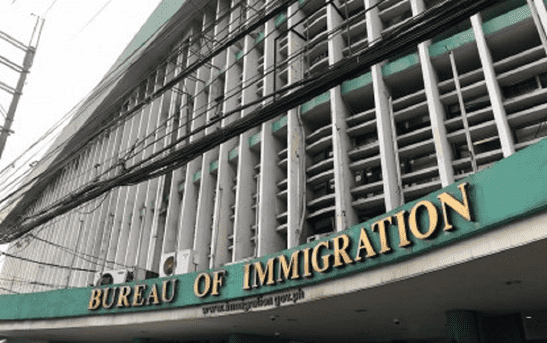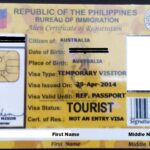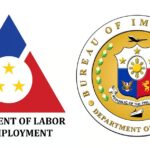The Philippines has become an attractive destination for foreign entrepreneurs thanks to its growing economy, English-speaking workforce, lower labor costs, and strategic Southeast Asian location. But before setting up shop, foreigners must understand the country’s legal framework for business ownership. We’ll walk you through the requirements, process, and practical tips to help you legally start a business in the Philippines.
Can a Foreigner Start a Business in the Philippines?
Foreigners can legally start and grow a business in the Philippines, provided they properly register their business and obtain the required visa. However, they must also be mindful of specific regulations and ownership restrictions, which vary depending on the type of business.
Why Work in the Philippines?
Foreigners choose to start businesses in the Philippines for several reasons:
- Skilled and English-speaking talent – The Philippines has a young, tech-savvy, and English-speaking workforce, making communication and hiring more efficient. Their skill set is ideal for digital roles and serving English-speaking clients worldwide.
- Strategic location – Located in Southeast Asia, the Philippines is a gateway to major regional markets.
- Growing consumer base – With over 110 million people and household consumption estimated at ∼70% of GDP, there’s strong demand for various goods and services. “Global brands such as McDonald’s, Apple, Anytime Fitness, and Uniqlo thrive in the Philippine market.
- Support for foreign investment – The government actively promotes foreign direct investment, offering incentives through special economic zones and investment boards. Through laws like CREATEMORE, you can access lower tax rates.
However, following the proper legal processes is important to avoid penalties or legal complications.
List of Required Visas
To start or manage a business in the Philippines, foreigners typically need one of the following:
- Special Investor’s Resident Visa (SIRV)
Issued by the Bureau of Immigration, the SIRV is granted to foreigners who invest at least USD 75,000 in qualified businesses or publicly listed corporations. This visa allows indefinite stay in the Philippines as long as the investment is maintained.
- Special Visa for Employment Generation (SVEG)
This visa offers indefinite stay and work authorization for foreigners who directly employ at least 10 Filipino workers.
- 9(g) Pre-Arranged Employment Visa
If you’re being hired by a Philippine-based company (including your own registered business), this work visa allows legal employment, subject to DOLE and Bureau of Immigration approval.
- Other visas (e.g., SRRV for retirees)
Certain visa holders, such as those with a Special Resident Retiree’s Visa (SRRV), can also establish businesses, depending on their visa category and conditions.
Business Ownership Rules for Foreigners
Foreign ownership is possible in many industries, but some sectors are restricted. The Foreign Investments Negative List (FINL) outlines where foreign ownership is restricted or prohibited.
- 100% Foreign Ownership Allowed: Industries not listed in the FINL. This includes certain export-oriented enterprises, IT-BPO firms, and manufacturing sectors.
- Up to 40% Foreign Ownership: This applies to industries such as public utilities, natural resource exploration, land ownership, education, and media-related sectors.
- Restricted or Prohibited: Small-scale mining, security services, and certain professions.
Foreigners must comply with ownership limits depending on the industry and business structure. Consult with us to ensure your business will be compliant with Philippine law.
Steps to Legally Start a Business
Here’s a general overview of how to start a business in the Philippines as a foreigner:
- Choose a Legal Business Structure
The most common options are:
-
- Corporation – Can have up to 100% foreign ownership (if allowed by law)
- Branch Office – An extension of a foreign company
- Representative Office – For non-income generating activities (e.g., liaison work)
- Register with Relevant Government Agencies
Depending on the business structure, you’ll need to register with:
-
- Securities and Exchange Commission (SEC) – For corporations or partnerships
- Department of Trade and Industry (DTI) – For sole proprietorships
- Bureau of Internal Revenue (BIR) – For tax registration
- Local Government Unit (LGU) – For business permits and clearances
- Comply with Capital Requirements
The required minimum investment depends on the nature of your business and whether you meet certain criteria.
- Open a Corporate Bank Account
You’ll need a local business bank account to deposit your paid-in capital and manage operations.
- Obtain Additional Permits (if applicable)
Depending on your business type, you may need additional permits from specific government agencies. These include the following:
- Food and Drug Administration (FDA): For businesses dealing with food, cosmetics, health products, or pharmaceuticals
- Bangko Sentral ng Pilipinas (BSP): For financial institutions and fintech companies
- Commission on Higher Education (CHED): For educational institutions offering higher learning
- Department of Public Works and Highways (DPWH): For construction-related businesses and contractors
- Department of Environment and Natural Resources (DENR): For industries that affect the environment, such as mining or waste management
- Philippine Economic Zone Authority (PEZA): For businesses operating in economic zones, especially those seeking tax incentives
We can assist you in securing your visa and all necessary documents. Contact us today and we’ll handle the paperwork so you can focus on growing your business.
Final Thoughts
The Philippines offers promising opportunities for foreign entrepreneurs with its strong consumer base and strategic advantages. Starting a business here is worth it, but it requires careful planning and legal compliance. Obtain a visa, make your investment, register your business, and secure the permits you need. Our team is here to guide you through visa applications and business registration should you need assistance.
Are You Planning to Start a Business in the Philippines?
Let Work Visa Philippines guide you through the process. Our experienced lawyers and business registration experts will help you obtain your visa, register your business, and secure permits from the appropriate government agencies. We’ll make sure you’re fully compliant so you can focus on launching and growing your business.
Reach out today, and we’ll guide you every step of the way.
- Contact Us here
- Fill Out the Form Below
- Call us at +63 (02) 8540-9623





